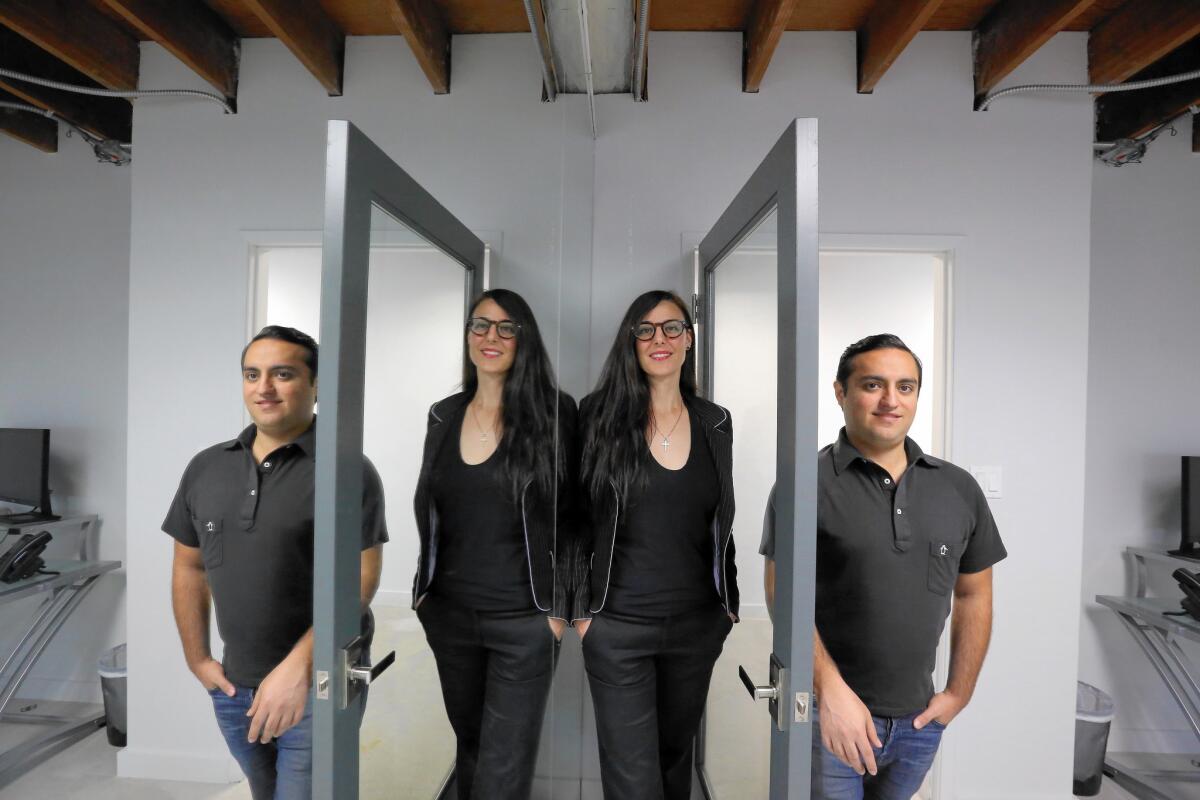Does bitcoin’s underlying technology have other uses? Investors think so

- Share via
Anyone interested in modern technology has heard of the digital currency called bitcoin, even if few people understand how it works.
Don’t worry. Credit cards and cash will remain the common currency for some time to come.
But as bitcoin and other digital currencies evolve, the technology that underlies them may soon spread into other transactions: trading stock, buying and selling real estate, purchasing music and much more.
A mini-industry is forming to take advantage of the technology called blockchain, aiming to make a wide variety of transactions faster, cheaper and more secure.
The idea is to remove, as much as is practical, people and their bureaucracies from the transference of money, contracts and other data where tracking ownership is important.
The several days it takes for a $40,000 payment to clear a bank, for example, could be cut to 10 minutes by relying on blockchain’s specialized, ostensibly highly secure computer networks. Bitcoin does just that.
“We want to use the Internet to move things around because it’s fast, low-cost and transparent,” said Adam Ludwin, chief executive of bitcoin start-up Chain Inc.
Bitcoin-related start-ups raised $375 million in the first half of 2015, or about 11% more than they did in all of 2014, investment tracking firm CB Insights said last week. The number of investments rose 63% compared with last year’s first six months.
Several venture funds are popping up to focus on alternative uses for blockchain. Big players including the Nasdaq stock market and Goldman Sachs, both of which engage in an unfathomable number of transactions each day, are investing in blockchain experiments. Goldman Sachs funded a start-up using blockchain to track and protect U.S. dollars, not bitcoins. And Nasdaq is working with Chain to build a blockchain-based marketplace for shares in privately held companies.
Blockchain start-ups include Ambisafe Inc., engaged in projects such as a tamper-proof national voting system, and Blockchain Technology Group, a San Diego company working on a blockchain-based music streaming service, with rock-solid transaction records that could help artists recover royalty money that somehow leaks away undetected through the existing tracking system.
Blockchain is a risky bet, but some investors are going all in. Block26, a newly formed Los Angeles-based venture capital firm, last month announced a $450,000 investment in Airbitz, which wants to enable devices to communicate with each other with help from the blockchain.
“The idea is to not miss out in making history,” said Ni’coel Stark, managing principal at Block26.
So what is blockchain?
First, consider that a currency like bitcoin, which lives only on computers and is backed by no government or central bank, could not exist for long — even as a cult phenomenon — if users couldn’t trust it.
The biggest safety issue confronting digital currencies is double-spending: a system needs to be in place to prevent a bitcoin from being spent by the same person more than once.
Blockchain is the system that bitcoin inventors devised. To understand how blockchain works requires dedicated study, but non-specialists might think of it as a publicly viewable spreadsheet that records every bitcoin transaction — who sent how much to whom (it’s possible to remain fairly anonymous). Every few minutes, a “block” of new rows is added. But old blocks on the chain can’t be edited. They’re locked tight by theoretically unbreakable computer code.
At least thousands of specially set up computers store a copy of the blockchain, so messing with records would require the herculean feat of infecting them all. Anyone can set up one of these computers, which work together to find inconsistencies and prevent fraud like double-spending. The people and businesses around the world who have set up these computers collect fees in exchange for authorizing transactions.
Finding applications for blockchain is wide-open territory right now. Factom, an organization in Austin, Texas, proposes using it to verify and lock down the records on mortgage contracts, with the aim of preventing some of the abuses of the mortgage meltdown, where signatures were faked and mortgage contracts went missing.
Like those who sold picks and shovels to miners in the Gold Rush, some blockchain start-ups like Factom are tweaking the basic technology so entrepreneurs can develop new applications on top of it.
And like the early days of the Internet, they say the potential uses for the blockchain being discussed today might amount to chump change compared to what businesses end up using a few years from now.
The roadblocks to blockchain are more than technical. Retail banks and other established institutions make money from the friction in the system, on fees and on the float they get by holding money in the several days it takes for transactions to transfer.
Still, it’s clear that entrepreneurs in the digital currency industry think blockchain applications could be “much bigger than the bitcoin currency itself,” said Andrey Zamovskiy, chief executive at Santa Monica-based Ambisafe.
“We are being approached by a big wave of disruption.”
Twitter: @peard33
More to Read
Inside the business of entertainment
The Wide Shot brings you news, analysis and insights on everything from streaming wars to production — and what it all means for the future.
You may occasionally receive promotional content from the Los Angeles Times.











